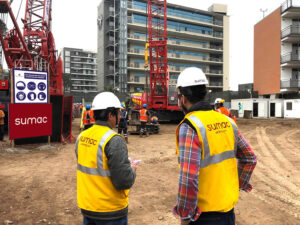In the competitive landscape of the hospitality industry, hotels are constantly seeking innovative ways to enhance guest experiences and differentiate themselves from their competitors. One often-overlooked aspect of hotel design that can significantly elevate the guest experience is the outdoor space, specifically patios. Patios offer guests a unique setting to unwind, socialize, and enjoy the surroundings of the hotel. However, creating and maintaining a functional and aesthetically pleasing patio requires expertise beyond traditional landscaping. This is where hiring a professional patio installer becomes essential. In this article, we delve into the reasons why hotels should consider investing in patio installers to maximize the potential of their outdoor spaces.
Expertise in Design and Layout
Patio installers bring specialized expertise in designing and laying out outdoor spaces that are both functional and visually appealing. They understand the importance of creating seamless transitions between indoor and outdoor areas, ensuring a cohesive experience for guests. From selecting the right materials to optimizing space utilization, patio installers can transform ordinary outdoor areas into inviting retreats that complement the overall ambiance of the hotel.
Customization for Unique Brand Identity
Every hotel has its own unique brand identity and target demographic. Patio installers work closely with hotel management to understand their brand ethos and guest preferences, tailoring outdoor spaces to align with these parameters. Whether it’s creating intimate seating areas for couples or spacious gathering spots for events, patio installers can customize designs to reflect the hotel’s personality and enhance its appeal to guests.
Maximizing Functionality and Comfort
Beyond aesthetics, patio installers prioritize functionality and comfort to ensure that outdoor spaces are enjoyable year-round. They incorporate features such as shade structures, heating elements, and comfortable seating options to enhance comfort and usability in varying weather conditions. By maximizing functionality, hotels can offer guests versatile outdoor spaces suitable for relaxation, dining, or socializing, thereby increasing overall guest satisfaction and loyalty.
Attention to Detail and Quality Craftsmanship
Quality craftsmanship is paramount when it comes to outdoor installations that are exposed to the elements. Patio installers possess the skills and experience necessary to execute projects with precision and attention to detail. Whether it’s installing intricate paving patterns or constructing custom-built features, they prioritize quality at every stage of the process. Investing in professional patio installation ensures that outdoor spaces not only look stunning upon completion but also withstand the test of time, minimizing maintenance costs in the long run.
Enhancing Guest Experience and Revenue Potential
A well-designed and meticulously maintained outdoor patio can significantly enhance the overall guest experience, thereby driving positive reviews and word-of-mouth referrals. Moreover, hotels can leverage outdoor spaces to host events, weddings, or corporate gatherings, thereby tapping into additional revenue streams. Patio installers play a crucial role in creating versatile outdoor venues that cater to diverse guest needs and preferences, ultimately contributing to the hotel’s bottom line.
Staying Ahead of the Competition
In today’s competitive hospitality landscape, staying ahead of the competition requires continuous innovation and differentiation. Hotels that invest in professional patio installation demonstrate a commitment to providing exceptional guest experiences and setting themselves apart from competitors. By offering inviting outdoor spaces that resonate with guests, hotels can strengthen their brand presence and attract discerning travelers seeking memorable stays.
Conclusion
In conclusion, the decision to hire a patio installer is not just about beautifying outdoor spaces; it’s about elevating the entire guest experience and driving business success. From design conceptualization to execution, patio installers bring specialized skills and insights that are essential for creating outdoor environments that captivate guests and enhance the overall ambiance of the hotel. By investing in professional patio installation, hotels can unlock the full potential of their outdoor spaces, differentiate themselves from competitors, and cultivate lasting impressions that keep guests coming back for more. In an industry where every detail matters, patio installers emerge as indispensable partners in shaping unforgettable hospitality experiences.









